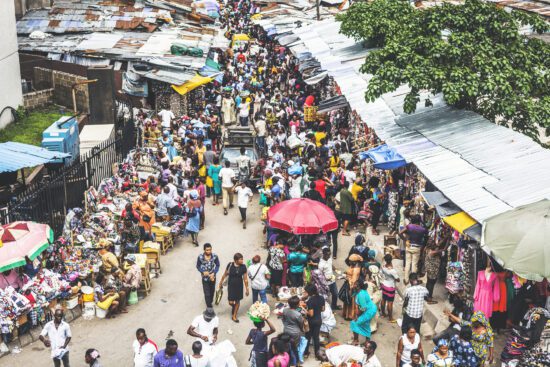And you are to love those who are foreigners, for you yourselves were foreigners in Egypt. (Deuteronomy 10:19)
It is hard to argue that immigration policy in our nation is controversial, divisive and lacking. Far too often, leaders in both political parties use immigration as a wedge issue to raise money and pander to base supporters, rather than digging into the quagmire that is our immigration system to actually solve problems.
There was a time in recent history when I viewed immigration through a mostly partisan, punditry lens, as well. I was more likely to refer to a certain class of immigrants as illegal rather than undocumented before understanding that deportation proceedings are matters of civil law and not criminal law. More often than not, I would think of undocumented immigrants as malicious criminals who were taking more away from our societal structures than they were contributing to the fabric of our nation.
Then, in 2011, my wife spent a summer of law school in an internship with a faith-based, pro bono legal clinic called Justice For Our Neighbors. Her experiences working with undocumented immigrants who were victims of human trafficking and domestic violence opened our eyes to just how broken our entire immigration system is. It also provided tangible ways for the body of Christ to live out Scripture.
Rescuing the vulnerable from abuse and trafficking
This is what the LORD says: Do what is just and right. Rescue from the hand of the oppressor the one who has been robbed. Do no wrong or violence to the foreigner, the fatherless or the widow, and do not shed innocent blood in this place. (Jer. 22:3)
My wife worked with women and children to get U & T Visas, a special category of immigration status for victims of abuse and trafficking. She met many women and children who fled their home countries to escape an abusive husband, only to have him follow them to America where he continued the violence. She met many others who fled profound poverty, only to come to America to face exploitation and even human trafficking at the hands of evil employers.
Every story was unique, but they all shared key characteristics:
- vulnerable populations in the United States
- no legal status
- living in the shadows
- manipulated
- abused
- exploited by criminals
Why wouldn’t these individuals come forward when they are most directly impacted by this darkness and are best situated to help make our nation’s neighborhoods and communities safer? It’s because they fear deportation and having their lives turned upside down when they’re sent back to a country with significantly less security and opportunity than this one. So special visas were created to incentivize victims to come forward and work with authorities to catch their attackers.
The work my wife did that summer not only brought her up close and personal to immigrants but also immigration law and public policy. She discovered truths that defy cliché and well-worn talking points. For example, she discovered the reality of the proverbial demand that immigrants wait to get into the country through legal means. She learned that there is no one single line and that waiting times for many individuals lasts more than two decades.

Source: http://nbclatino.com/2013/04/11/the-immigration-line-whos-on-it-and-for-how-long/
We began to realize that perfectly rational people who wanted to abide by the law would still find our tangled web of immigration policies difficult to comprehend and nearly impossible to navigate. If you faced life-threatening poverty and violence, needed to put food on the table, or thought there was an opportunity to better your life and you needed that chance now instead of five to 20 years in the future . . . well, now you begin to understand how broken our system is.
It became clear to us that the talking points did not seem to do justice to how unjust our system is. The situation is not as simple as politicians from both sides of the aisle would have us believe.
Viewing immigration through the lens of the imago dei
Do not oppress a foreigner; you yourselves know how it feels to be foreigners, because you were foreigners in Egypt. (Exodus 23:9)
It’s not that I no longer believe in prioritizing border security and the rule of law. With an ever-more dangerous world and increasing instability in nations to our south, these things are vitally needed to protect not only our own citizens but the communities of all nations in the Western Hemisphere. The legal implications and policies are complicated. But one thing is not: our current system is broken and in need of reform. Our current system incentivizes illegal immigration. Without reform, the problems both political parties preach about will only get worse.
My wife’s experiences in the summer of 2011 opened our eyes to all the people affected by our nation’s immigration policies. We are no longer able to view America’s immigrant communities in the abstract. We can no longer tolerate a pre-existing narrative of who they are in order to reinforce partisan viewpoints on immigration.
Instead, we see the desperate faces of precious mothers, fathers, sons and daughters who are marked first and foremost by the imago dei. We may, and certainly will, disagree about the best way to fix the broken immigration system in America, but as Christians who recognize the dignity of all human beings, we must not settle for a vilified caricature of an entire group of God’s children. We must look our immigrant brothers and sisters in the eyes and commit to working toward a solution, both for the sake of our own stability and security and for theirs.










